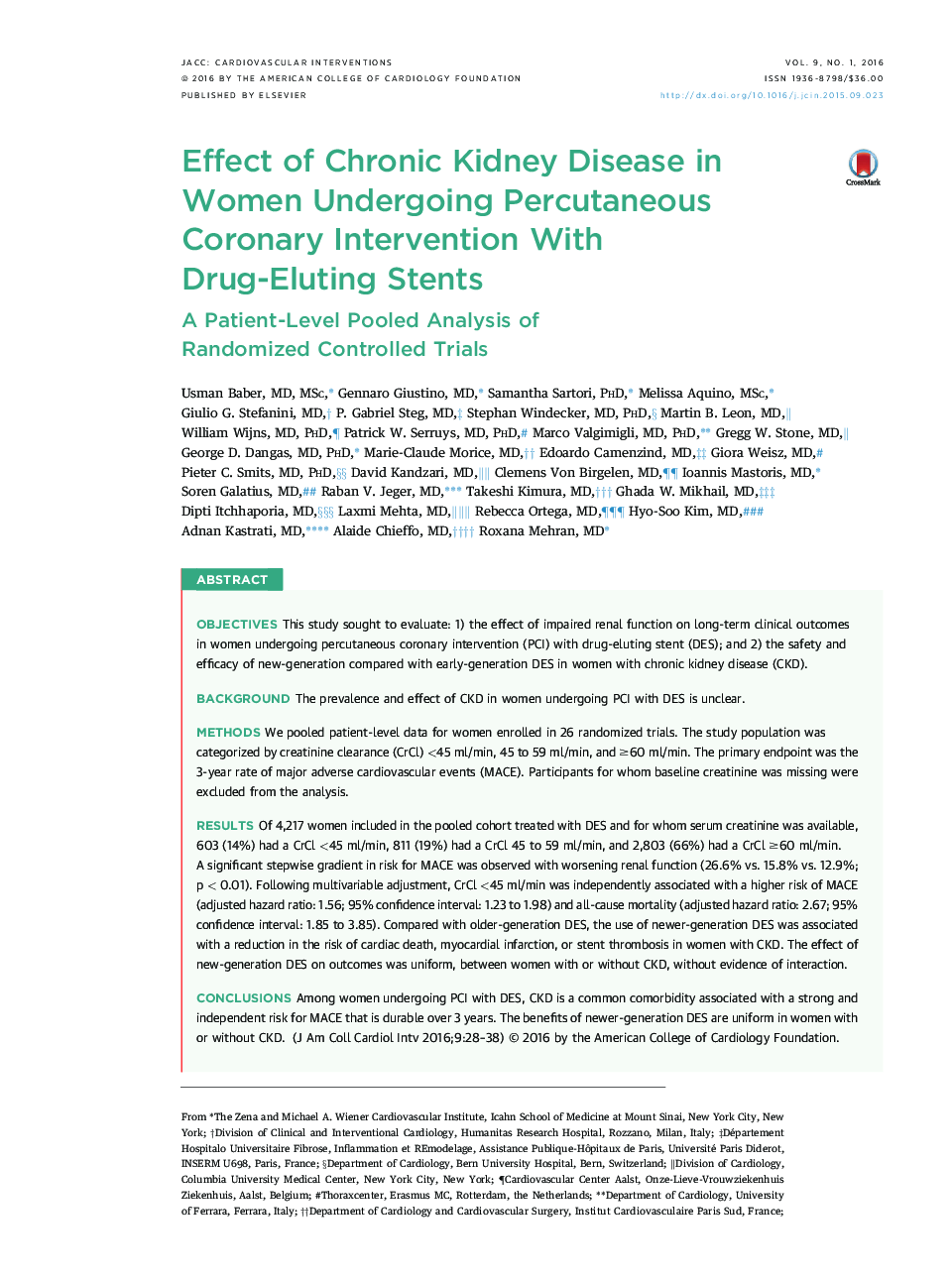| کد مقاله | کد نشریه | سال انتشار | مقاله انگلیسی | نسخه تمام متن |
|---|---|---|---|---|
| 5980917 | 1177018 | 2016 | 11 صفحه PDF | دانلود رایگان |
ObjectivesThis study sought to evaluate: 1) the effect of impaired renal function on long-term clinical outcomes in women undergoing percutaneous coronary intervention (PCI) with drug-eluting stent (DES); and 2) the safety and efficacy of new-generation compared with early-generation DES in women with chronic kidney disease (CKD).BackgroundThe prevalence and effect of CKD in women undergoing PCI with DES is unclear.MethodsWe pooled patient-level data for women enrolled in 26 randomized trials. The study population was categorized by creatinine clearance (CrCl) <45 ml/min, 45 to 59 ml/min, and â¥60 ml/min. The primary endpoint was the 3-year rate of major adverse cardiovascular events (MACE). Participants for whom baseline creatinine was missing were excluded from the analysis.ResultsOf 4,217 women included in the pooled cohort treated with DES and for whom serum creatinine was available, 603 (14%) had a CrCl <45 ml/min, 811 (19%) had a CrCl 45 to 59 ml/min, and 2,803 (66%) had a CrCl â¥60 ml/min. A significant stepwise gradient in risk for MACE was observed with worsening renal function (26.6% vs. 15.8% vs. 12.9%; p < 0.01). Following multivariable adjustment, CrCl <45 ml/min was independently associated with a higher risk of MACE (adjusted hazard ratio: 1.56; 95% confidence interval: 1.23 to 1.98) and all-cause mortality (adjusted hazard ratio: 2.67; 95% confidence interval: 1.85 to 3.85). Compared with older-generation DES, the use of newer-generation DES was associated with a reduction in the risk of cardiac death, myocardial infarction, or stent thrombosis in women with CKD. The effect of new-generation DES on outcomes was uniform, between women with or without CKD, without evidence of interaction.ConclusionsAmong women undergoing PCI with DES, CKD is a common comorbidity associated with a strong and independent risk for MACE that is durable over 3 years. The benefits of newer-generation DES are uniform in women with or without CKD.
Journal: JACC: Cardiovascular Interventions - Volume 9, Issue 1, 11 January 2016, Pages 28-38
